Canadian politics 2016: The year in 12 chapters
John Geddes returns with his annual month-to-month look back at Canada’s national affairs
Macleans Magazine’s Ottawa and Montreal bureau head shots at Third Floor York studio in Ottawa December 12, 2013.
Photo by Blair Gable
Share
How many overseas trips did Prime Minister Justin Trudeau take in 2016 (leaving aside his five jaunts to the United States)? How many MPs sat on the special committee on electoral reform, whose work was slammed, in no uncertain terms, by Democratic Institutions Minister Maryam Monsef (though she later apologized, saying she hadn’t really meant it)?
The answer, in each instance, is 12. Trudeau’s travels took him everywhere from Switzerland, for the World Economic Forum, to Madagascar, for the Francophonie summit. The House electoral reform committee featured an unconventional mix of seven opposition MPs and just five from the government benches, after the Liberals gave up their usual majority in a peacemaking gesture.
But we won’t concern ourselves here with those instances of even dozens popping up in politics. (We’re not even distracted by the $12 additional charge levied at the Trump Grill to add lobster to the $18 “Ivanka’s salad.”) No, this annual year-end feature cares only for the 12 months of the calendar, selecting just one story from each month in 2016 to sum up this waning year in Canadian federal politics.
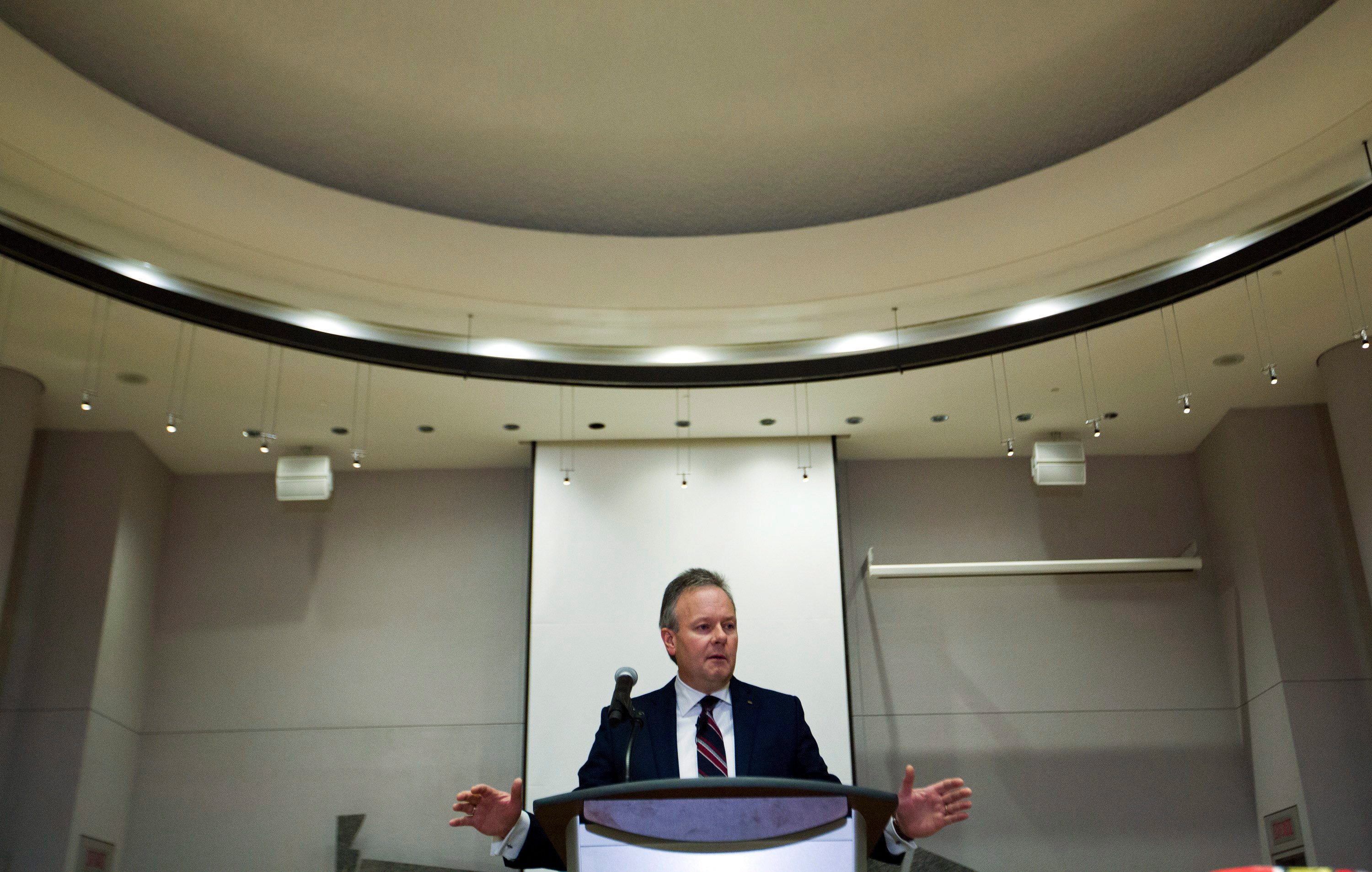
JANUARY: We were reminded that central bankers needn’t talk like politicians
After the exuberance of the fall 2015 election of Justin Trudeau’s government, it fell to Bank of Canada governor Stephen Poloz to set a more sobering tone for 2016. Poloz told a breakfast crowd in Ottawa that the annual hit to the Canadian economy from low prices for oil and other commodities was $50 billion. That’s 10 times more than the annual infrastructure stimulus spending boost Justin Trudeau was promising. Poloz suggested a three-to-five-year adjustment was still in store for Canada’s economy. It was a sobering message that would echo through the year’s politics.
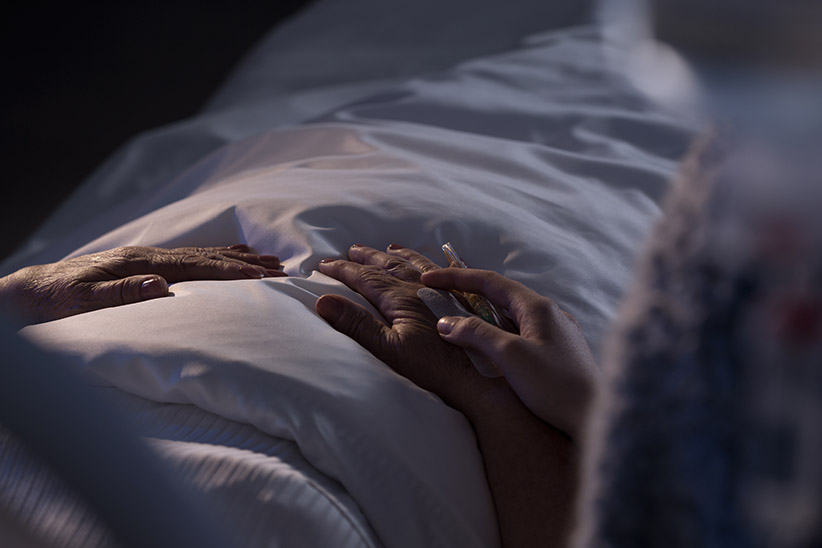
FEBRUARY: We pondered deep ethical issues arising as tough political dilemmas
By releasing a report calling for doctor-assisted dying with few restrictions, a joint House and Senate committee launched a fraught debate on the darkest, most unsettling questions of life and death. In April, the government finally tabled a bill to make it legal for doctors to help bring about death for individuals who are “suffering intolerably” and for whom a natural death is “reasonably foreseeable.” The law applies only to consenting adults who are at least 18 years old and are in “an advanced state of irreversible decline.”
MORE: Looking for death, when the assisted-dying law leaves you behind
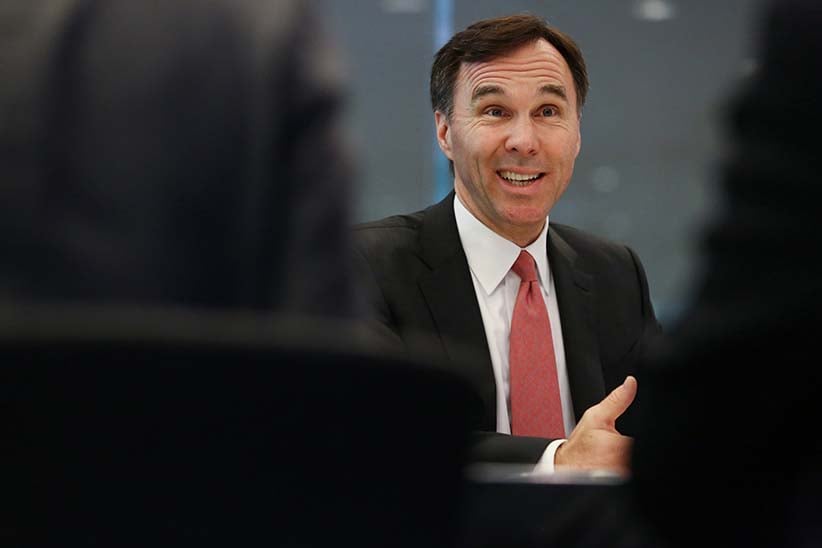
MARCH: We were asked to accept economic progress pushed into the future
Trudeau’s 2015 election campaign was all about hope, but his Liberal government’s first budget put the accent on patience. Finance Minister Bill Morneau reached into history, touting the way Canadians didn’t give up “after the dark days of the Great Depression and the Second World War.” Can it really be so grim again? No. But Morneau would spend the rest of the year signalling that the government’s economic growth policies will be designed to help the children and grandchildren of today’s taxpayers. Remember Poloz’s tone back in January? These aren’t boom times.
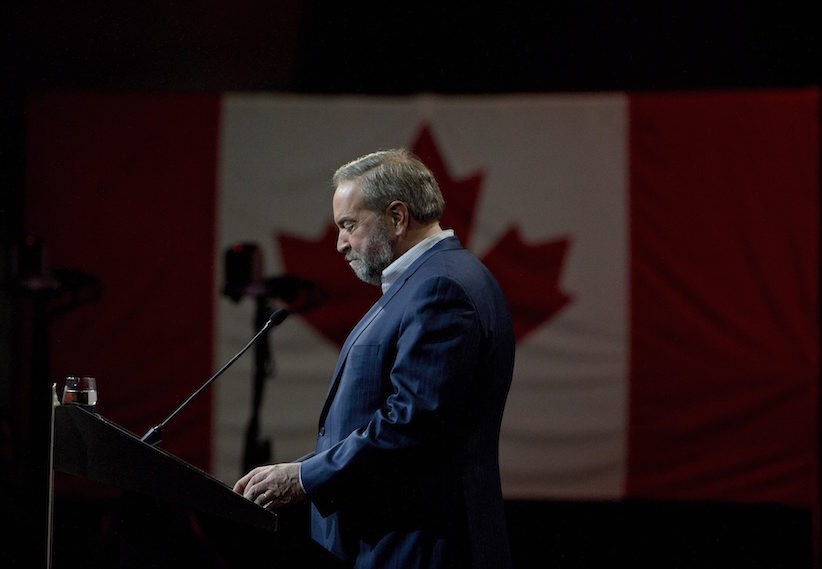
APRIL: We winced at politics at their least forgiving, as the NDP dumped its leader
It wasn’t pretty. As NDP delegates met at an Edmonton convention centre, signs mounted that Tom Mulcair—having led his party to a dispiriting third-place finish in the 2015 election—would not survive a mandatory vote to review his leadership. As Mulcair was being dumped, speculation around the convention floor made Megan Leslie, a popular Halifax MP who had lost her seat the previous fall, a top pick to succeed him. But Leslie quickly ruled herself out. Mulcair remains a caretaker leader, and the NDP is still without a front-running choice to replace him.
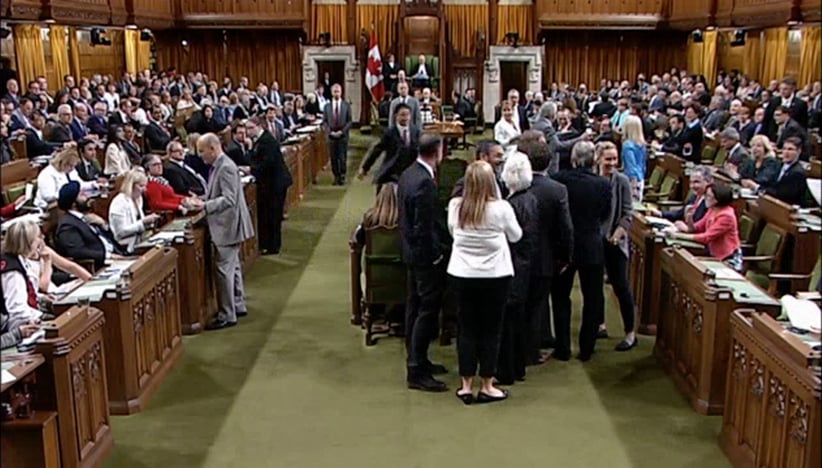
MAY: We saw the customarily congenial PM lose his cool, squander some capital
Leaving aside what more it might have signified when Trudeau lost it in the House, his rude rush across the aisle was terrific TV. (Here at Maclean’s, we got former NHL referee Kerry Fraser to break down the tape of the incident as a sort of bench brawl.) The awkward physicality of Trudeau’s lapse showed how fast his image as a good-looking good guy could collapse. How seriously did Trudeau take it? Enough to liken the way he and his Liberals were looking to the previous Conservative government. The moment brought home the political potency of unflattering video clips in the social-media age.
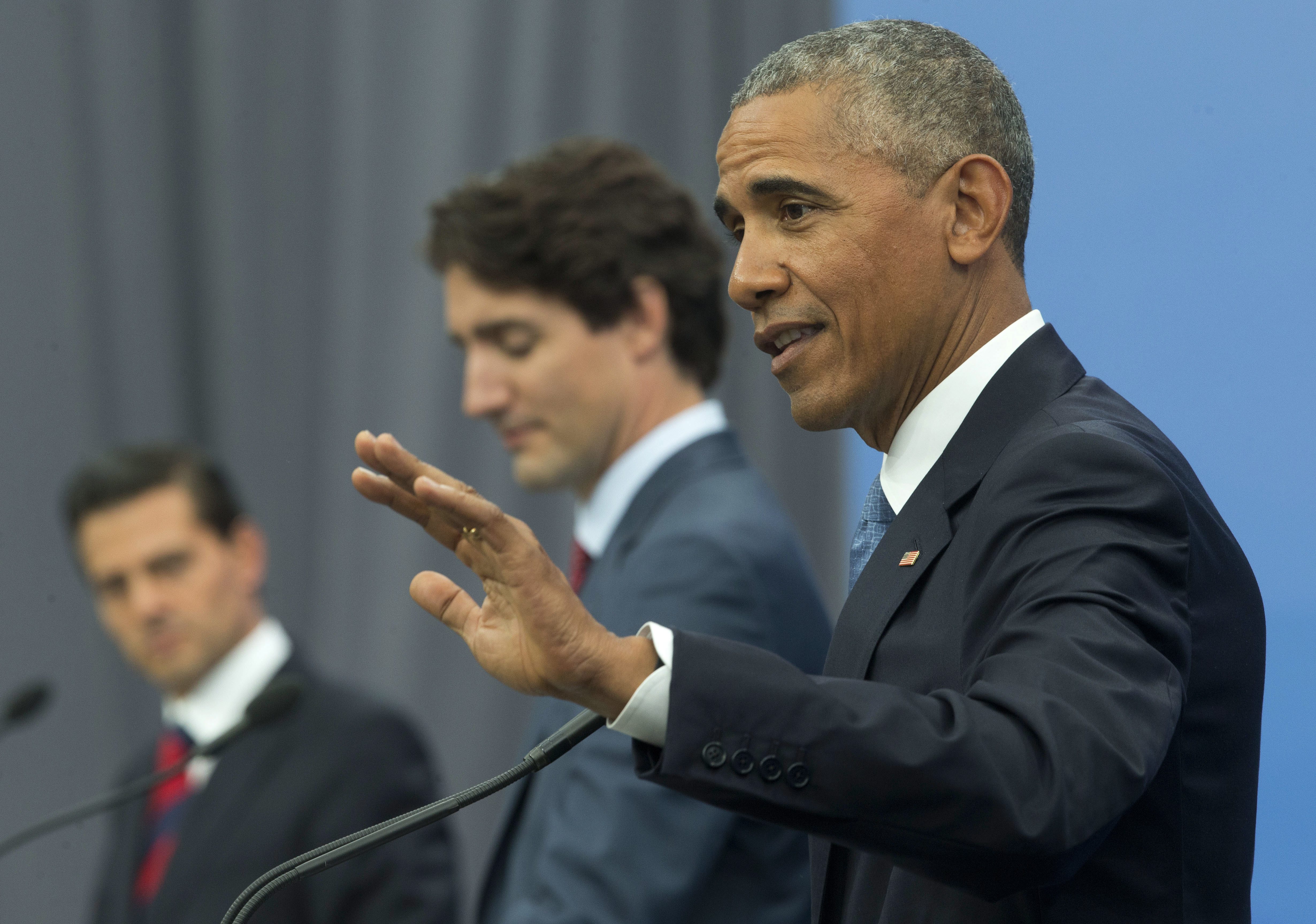
JUNE: We heard an indefatigably hopeful voice, and realized we would miss it
Barack Obama came to Ottawa and reminded us with his remarkable speech in the House about how much of politics isn’t about legislation or treaties or regulations, but rather about the voice of leadership. Obama warned of what happens when “the benefits of globalization accrue only to those at the very top.” He extolled the values of pluralism, tolerance and equality. “Those things are hard, but they are right,” he said. “They are not always convenient, but they are true.” The air of the century-old chamber vibrated with the urgency of his oratory. It’s hard to envision Donald Trump speaking there.
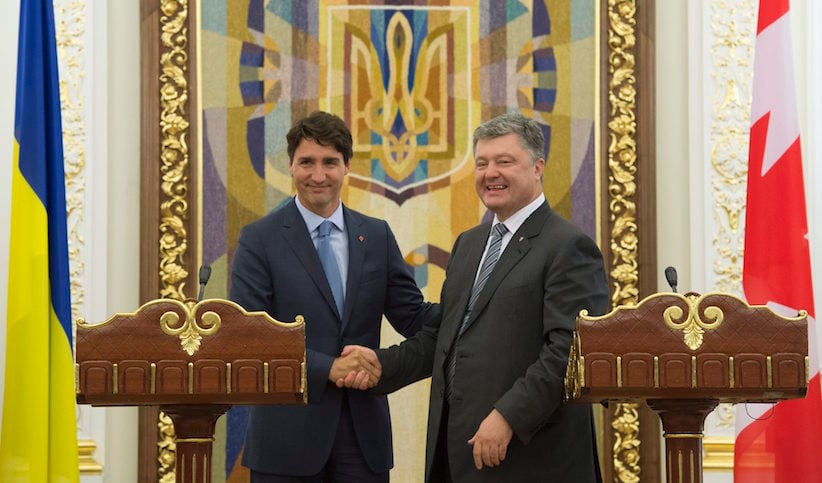
JULY: We took a modest step toward counterbalancing a geopolitical tough guy
At a NATO summit in Warsaw, Trudeau announced that Canada would lead the alliance’s new battle group in Latvia, deploying about 450 Canadian soldiers indefinitely on Russia’s doorstep. Germany, the United States and Britain are leading similar forces in Lithuania, Poland and Estonia. It was Canada’s most emphatic contribution to the Western response to Russian President Vladimir Putin’s abrasive foreign policy in places like Ukraine and Syria. Later, Russia’s ambassador to Canada took the unusual step of suggesting Canada rethink the Latvian commitment—perhaps the clearest sign that it was the right thing to do.
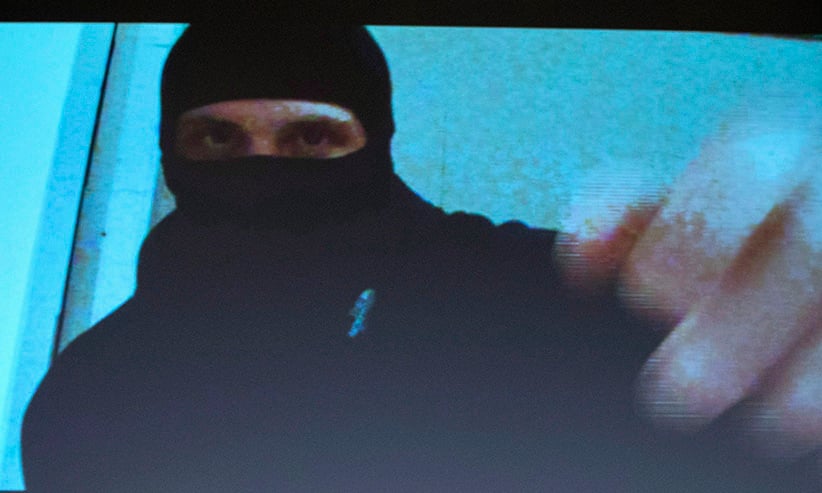
AUGUST: We were jolted again by a case of homegrown terrorism, in a black mask
When 24-year-old would-be terrorist bomber Aaron Driver was killed in a confrontation with police in Strathroy, Ont., Canadians woke up again to the realization that terrorism inspired by radical Islam can invade the imaginations of troubled young men in Canada as readily as anywhere. The RCMP showed a chilling video of Driver, clad in a black balaclava, on a big screen at the force’s Ottawa headquarters. But where was the federal policy response? The Liberals still haven’t reformed the Conservatives’ controversial anti-terrorism law, as they pledged to do in the 2015 campaign, nor have they established a promised new program to counter violent extremism.
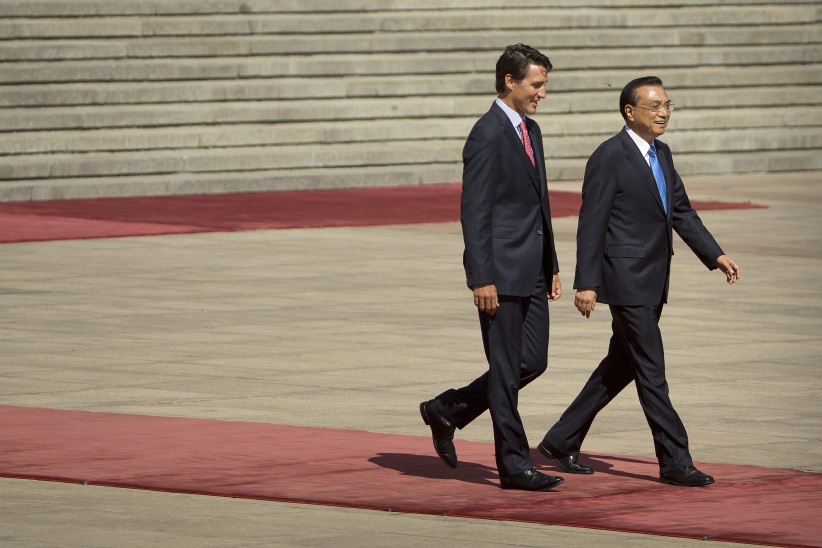
SEPTEMBER: We turned our attention, repeatedly, to the world’s biggest economy
Although his first trip as Prime Minister to China, straddling late August and early September, included talking trade and investment in Beijing with President Xi Jinping, Trudeau also staged some of his signature photo ops, like a court-side turn as guest coach of a basketball team in Shanghai. Later in September, Li paid a return visit to Ottawa. But Trudeau’s close attention to economic ties with China would be highlighted later in a far less flattering context, when the Globe and Mail reported he had starred at an event with Chinese billionaires at a private Toronto home that seemed to flout guidelines for political fundraising events.
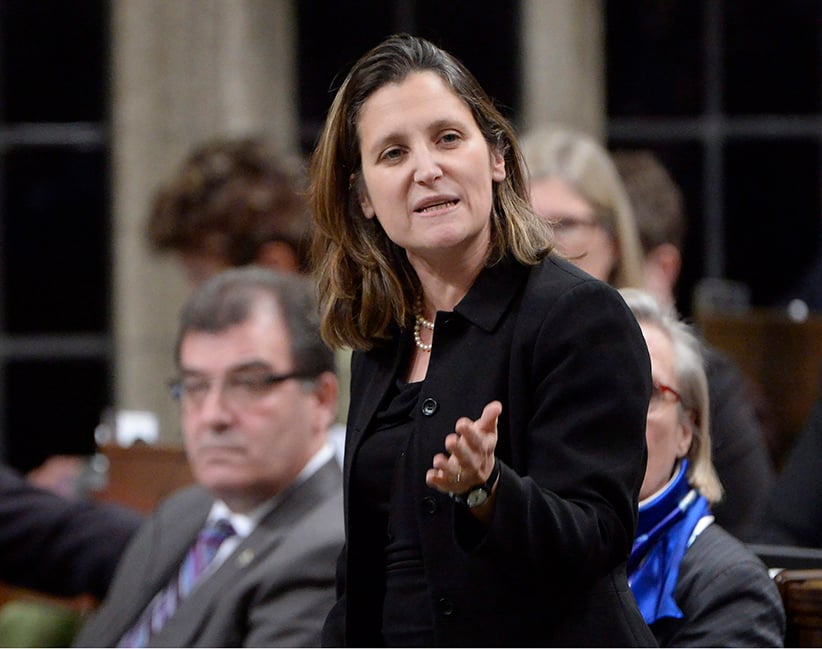
OCTOBER: We discovered a place called Wallonia, and signed a huge trade deal.
The deal didn’t come easily. Seven years of negotiations between Canada and the European Union toward what is called the Comprehensive Economic and Trade Agreement (CETA) almost broke down in the final weeks. Incredibly, objections from the tiny Belgian region of Wallonia almost prevented the giant EU from signing. International Trade Minister Chrystia Freeland walked out in frustration. Then the Europeans found a way. In a year of a shrill new protectionist rhetoric from Donald Trump and the Brexit backers, CETA’s message of openness landed as reassuringly retro.
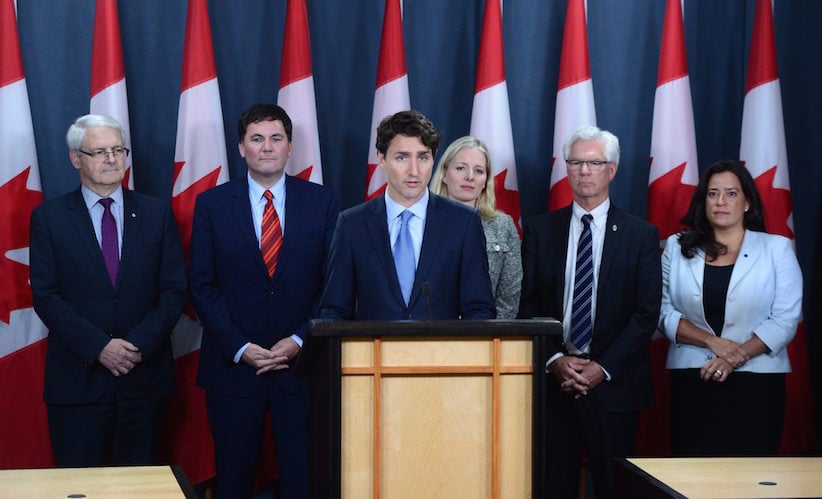
NOVEMBER: We weighed the PM’s bid to play pipeline politics down the centre
There was an undeniable balance to Trudeau’s big decision on pipelines: approve Kinder Morgan’s plan to twin its existing Trans Mountain pipeline from Edmonton to Burnaby, B.C., while killing Enbridge’s proposed Northern Gateway pipeline in northern B.C. Did that mean both the energy industry and environmental movements were happy? Of course not. There’s an inevitable battle to come over the Kinder Morgan project. Still, Trudeau chose a plausible middle way, consistent with his largely pro-oil patch talk, going back to the launch of his 2013 Liberal leadership bid.
MORE: Why Lightning Rock might be a lightning rod for pipeline protesters
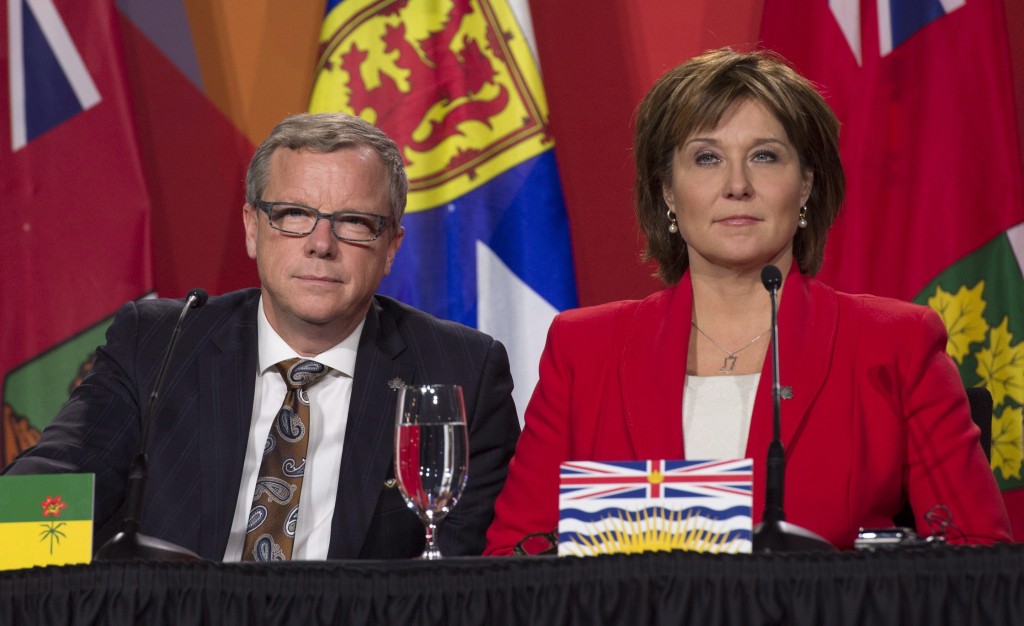
DECEMBER: We remembered that climate change is, after all, the issue of the age
Back in the spring, Trudeau met the premiers in Vancouver to talk climate change, but failed to get the agreement he sought. This time, the premiers came to Ottawa, with their environment ministers tagging along. After a bit of fed-prov summit showmanship from B.C.’s Christy Clark, Trudeau got his Pan-Canadian Framework on Clean Growth and Climate Change, with only Manitoba and Saskatchewan declining to sign. It’s an incomplete blueprint for cutting greenhouse gas emissions, but it’s an undeniable policy landmark all the same. And, as Trudeau said later in a speech in Calgary, if Trump’s presidency means America won’t be fighting global warming, that will only give Canada the edge in luring investors looking to bet on the energy economy of the future.
Decrying poor old 2016 as a grim, unsettling excuse for a year has become something of a cliché. Perhaps it’s even true of the wide world. How might recent years in Canadian federal politics be ranked, though? One might compare and contrast this 2016 summary with my previous 12-chapter reviews for 2015, 2014, 2013, 2012, 2011 and 2010. But perhaps it would be better to just go see if there are any cookies and eggnog left.